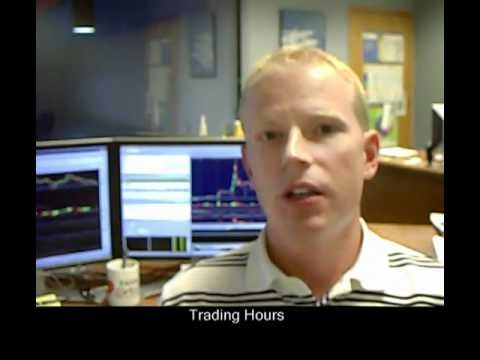Stock Trading Terminology
Post on: 4 Сентябрь, 2015 No Comment

Stock Trading Terminology
Understanding the stock trading terminology is a necessary step for anyone interested in the stock market. In this article, well introduce a few basic terms that make up the lingo of investors.
Buy and Hold. to buy and hold is a long term stock trading strategy. It implies buying stocks and keeping them for a long period of time before selling them. For a good number of stocks, it is historically a sound strategy, as the stock market has always gone up as a whole in the long run. Many investors, such as Warren Buffet, typically invest on companies which they are confident will be successful in the next 10 years or so, making them less likely to suffer the drawbacks on cycles and inflation.
Capital Gain. when the value of an asset exceeds its purchase price, the increase is called capital gain. Capital gain is either realized or unrealized. depending on whether the assets have actually been sold or not.
Capital Loss. when there is a decrease in an assets current value versus its purchase price, there is a capital loss .
Day Trader. a day trader is an investor who typically holds assets for a short period of time, usually trading them in the same day. Traders who perform 4 or more day trades within 5 business days are referred to as pattern day trader by the SEC (U.S. Securities and Exchange Commission), and may be subject to particular requirements, rules and restrictions.
Dividends. some corporations can decide to distribute earnings directly to all or part of their shareholders, rather than reinvesting them. Such earnings distributed are called dividends, and dividend stocks have a parameter called Dividend Per Share (DPS). Dividends most often come from stable and long established corporations.
Equity. equity represents ownership in a corporation, in the form of common or preferred stock. It can also be interpreted, in the case of futures or margin accounts, as the net value of the account if all positions were to be closed and margins paid off.
Going Long. going long means that a trade is done with the expectation that profit will come from an increase in the exchange rate. It the most intuitive and optimistic way a trade can be profitable.
Going Short (Selling Short). going short is the opposite of going long; it occurs when a trader is confident in making profit from a drop in the value of the traded assets.
Growth Strategy (growth stock). betting on growth stock is a stock trading strategy in which a trader aims at generating capital gains rather than dividends. Growth stocks are expected to grow at a rate superior than the average, and growth companies usually reinvest earnings. Technology companies often classify themselves as growth companies.
Hedge Funds. hedge funds are investment funds actively managed for a limited number of investors and institutions, using a wide range of investment strategies, methods and tools, such as short selling, derivatives, swaps and arbitrage. Hedge funds usually require a rather high minimum investment, and are managed by professionals charging management and performance-based fees.
Large Cap. large cap stands for large capitalization, and refers to companies with a market capitalization value of 10 billion US dollars or more.

Mid Cap. mid cap and refers to corporations with a market capitalization value between 2 and 10 billion US dollars.
Overweight. being overweight means that an investors portfolio holds more of a particular type of stock compared to the weight of that type of stock, in the relevant index. For instance, if an investors portfolio is comprised of 30% Growth stocks, and that Growth stocks represent 20% of the associated index, the portfolio is referred to as 10% overweight in Growth stocks.
S&P 500. S&P 500 stands for the market-value weighted index of Standards and Poors choice of 500 large cap common stocks traded currently in the United States. It is a good representation of the American economy as a whole.
Shorting. shorting, or short selling, or going short, means that an investor, hopeful that some assets value will drop, borrows them from a third party (a broker, most often), sells them, and makes the promise of returning the assets at a later time. The profit made is the difference between the price of the assets when sold versus its price when they were bought back. This can obviously yield a loss for the trader if the value goes up.
Small Cap. small cap, or small capitalization corporations, typically hold a market capitalization of between 300 million and 2 billion US dollars.
Spread. the spread for a security or asset is the difference between the current ask and the current bid price.
Volatility. volatility is a measure of risk for a security. It refers to the standard deviation of a securitys price over a certain period of time. High volatility means that the price of the security tends to move up and down quickly over a determined period of time, making it more risky.














